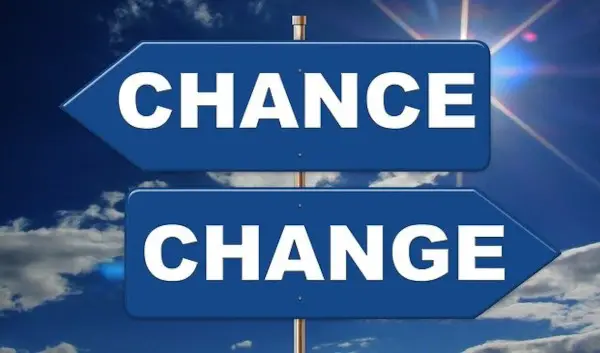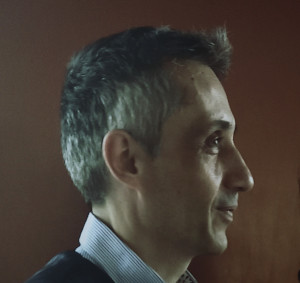All of us use our minds every single day, but although many of you might think that you understand your mind, actually even the best scientists and experts still don’t fully understand how our minds work. Until today, there have been numerous studies of how our mind works, and also various superstitions surrounding it.
We know we can use our minds to make rational decisions, logical explanations, and calculate mathematical equations. Yet, many have also speculated that our mental capabilities can actually do much more: telekinesis, mind-reading, and so on. Although it might seem like a concept straight out from sci-fi books and movies, there is actually some truth to these speculations: the human mind is indeed really powerful, and our thoughts, beliefs, and actions can affect our reality.
How Thoughts, Beliefs, and Actions are Related
Using our brain and mind to think is simply human nature.
Although we might not fully observe how we think too often (since it’s just natural), our minds essentially transform thoughts into actions, which will then produce outcomes.
Let’s observe how paintings, statues, fashions, and pieces, and furniture are designed. All of them must start from the thoughts and ideas inside the designer’s or artist’s mind. Then, these thoughts will be translated into actions (the painter actually paints), transforming what the artist is thinking into an outcome, the painting itself.
Our beliefs, on the other hand, are deeply related to our emotional spectrum. We humans can feel various emotions: happiness, sadness, anger, anxiety, fear, and so on, and as we know our emotions will vary depending on external and internal stimuli. What we think will influence how we feel, and ultimately, how we act.
If, for example, you think you are a great painter, then you’ll feel like a great painter, then you’ll act like a great painter (produces great painting). When you actually produce this good painting, it will reinforce your belief that you must be a great painter.
However, the same thing would also apply to negative beliefs: if you act like a failure and produce ugly paintings, then it will also reinforce the belief that you must be a failure of a painter.

The Cycle Repeats
The thing is, once you believe something about yourself, there are two things we often do: look for evidence that reinforces these beliefs and discount anything that disproves these beliefs.
For example, once you’ve strongly developed the belief that you are a failure, you’ll view mistakes as proof that you are indeed a failure, and even when you are successful, you’ll feel that it’s just luck.
So, your beliefs can keep you from thinking clearly, which in turn will prevent you from performing at your peak, which in turn can affect the outcome of your work.
This is how having a positive belief alone can lead to better outcomes, and better outcomes, as discussed, will help reinforce your positive belief, and so on the cycle repeats.
Related reading: The Magic of Faith – How Does Faith Impact Your Life? – Opens in new tab
Further Examination: How Your Thoughts, Beliefs, and Actions are Connected
We can think of our thoughts, beliefs, and actions as a trinity, a cognitive triangle that is inseparable from each other.
By themselves, they don’t have any power to produce any outcome. Only when they perform together as a cycle (as discussed above) can they produce real outcomes in your lives, be it good or bad outcomes.
When you have a thought or idea inside your mind, then your mind will produce feedback that instinctively tells you to analyze this thought. When your mind deemed this thought/idea as shallow or unimportant, then it won’t have power over anything: you won’t take any action, it won’t produce any outcome, and thus it won’t reinforce your belief.
As you can see, thoughts alone are powerless.
On the other hand, when your mind tells you that what you’re thinking is important, then it will develop emotional feedback (be it positive or negative). Based on the state of your feelings and emotion, you will produce certain actions.
For example, thinking that someone else is bad can produce anger, which will lead to certain actions, and on the other hand thinking that a cat is cute can produce different feelings altogether that will, in turn, drive another action.
To better explain how this works, below we will use several illustrations.
Let’s assume you are walking in your office hall. While you walk, you notice that there is a group of people giving you a glance at you, then they start laughing.
Check out our collection of “Free Online Audiobooks” and many free resources in our “Free Library”

Below we will discuss possible different scenarios of thoughts, feelings, actions, and beliefs patterns when we experience this situation.
- What you’re thinking: “they are making fun of me”, “they want to bully me”
- Feeling/belief: sad, ashamed, anxious
- Possible actions: cry, avoid them, stay alone
This is one of the possible scenarios of how your mind reacts to the situation and the possible action produced by the thought.
However, even with the same thought, your mind can react with different feelings/beliefs, which in turn will produce different outcomes, such as:
- What you’re thinking: “they are making fun of me”, “they want to bully me”
- Feeling/belief: anger, furious, upset
- Possible actions: confront them, punch them, fight them
As you can see, even the same thought can produce different outcomes based on how your mind processes these thoughts into beliefs. Different people can react differently to the same thought, and even the same person on different days (different moods) can have different beliefs about the same thought.
Next, we’ll discuss an example of how different thoughts can produce entirely different beliefs, that will produce different actions and outcomes:
- What you’re thinking: “they are having a good time”, “I have to hear that joke”
- Feeling/belief: curious, happy
- Possible actions: approach them, talk to them, laugh with them
As you can see, different assumptions can produce different thoughts, which in turn will produce different beliefs that produce different actions and outcomes.
By controlling your thoughts, you can encourage positive feelings and beliefs to form, which will allow you to produce positive outcomes with your actions.
How Your Thoughts and Beliefs Can Change Reality
Now that we’ve understood the relationships between thoughts, beliefs, and actions, let us discuss how this cognitive triangle can affect your day-to-day reality in various cases:
Shaping health and wellness
The placebo effect is a well-known phenomenon in the medical world that shows an example of how our thoughts and beliefs can affect reality.
A placebo effect is a phenomenon where the patient’s thoughts can affect the outcome of the treatment/medication given to them.
During a clinical trial, a group of patients will be given a placebo drug, a drug that doesn’t have any health benefit or negative effect, essentially an empty’ drug’, and another group of patients are given the real’ drug. Both groups don’t know which drug they were given, and in this case, patients given the placebo drug might feel better simply by believing that the drug is real.
Various research has suggested how the placebo effect is real, and patients with positive thoughts and beliefs can indeed be cured physically even when the treatment/medication given has no actual medical benefit.
Many doctors nowadays take the placebo phenomenon into consideration when planning treatments for patients, and we can see here how our thoughts might affect physical hearts. Positive thoughts have been shown to produce real health benefits like reducing anxiety, blood pressure, easing, pain, and so on, allowing doctors to plan a more holistic approach to treatments that will help a lot of people.
Related reading: From Setbacks to Stepping Stones: How to Turn Challenges into Opportunities for Growth – Opens in new tab
Easing pain and manage stress
Research by Standford University has shown that our minds can be tricked to manage and reduce pain. By managing and controlling your thoughts, you can produce the same effect as taking painkilling drugs, activating the same brain circuits.
Positive thoughts can increase blood flow in areas of the brain that are rich with opioid receptors, allowing us to better tolerate, and reduce pain.
The same principle can be applied to managing stress and anxiety: by having positive thoughts, we can also improve our mental wellbeing.
Achieving better results in study and life
Having a more positive mindset, and more confidence can help you achieve better results in life.
Positive people naturally have more energy, and because of this they tend to set higher goals (more positive beliefs) and are willing to spend more effort in achieving their goals. People with positive beliefs also tend to be more resilient, as we’ve discussed above in how actions can reinforce beliefs, so they’ll have an easier time to bounce back despite setbacks.
Also, negativity can narrow down our focus, while positivity will do just the opposite: allowing us to capture more ideas and be more creative. People with positive thoughts and beliefs can more clearly see multiple solutions to a problem and make better decisions, which in turn will produce positive results.

How To Train Your Mind for Positive Thoughts, Beliefs, and Actions
We have discussed how positive thoughts can produce positive outcomes and vice versa, but we all know controlling our mind to consistently think positive can be easier said than done.
The biggest challenge is often the fact that we can’t control external stimuli: there will always be someone in the workplace who complains all the time, causing us to also think and feel negatively.
There are always ways to see everything from the negative side: you can feel pain even when your body is completely healthy, you can feel that you don’t have enough money while in fact, you do, you can think that your spouse is cheating while in fact, they are loyal, and so on.
So, how can we train our minds to think and feel positive? Here are a few tips:
- Talk to yourself
Talk to yourself to help build positive thoughts. Saying “today will be a good day”, “it’s going to be awesome”, and other positive things can contribute to your feelings and beliefs.
This way, when you encounter setbacks throughout the day, you can face them without any negative thoughts affecting your mind. By practicing this on a daily basis, you will be amazed at how it will improve the outcome of your actions and the quality of life.
- Challenge negative thoughts
With the same principle, anytime your mind is thinking any negative thoughts, challenge it.
No matter how good we are at managing our minds, some negative vibes will always get into our heads. While it’s unavoidable, we can always try to mitigate it.
For example, when you suddenly remembered a bad decision or action you’ve done in the past, you can ask yourself, “am I really a bad person?”, “did I do that on purpose?”, and so on. Challenge your negative thoughts and reaffirm your positive mindset.
If necessary, tell someone you can trust about your negative thoughts, and ask them to help reaffirm your positive mindset (i.e. let them provide some evidence that your negative thoughts are wrong).
- Meditation
Meditation can help you ease your mind.
Yes, it might not help solve your problems directly, but it can help you control your thoughts and beliefs.
You might want to try mindfulness meditation. By training your mind to be mindful of what you are currently thinking, you can be more trained in controlling your mind and can repel any negative thoughts faster since you can detect them faster.

Closing Thoughts
Now we can more clearly see the relevance between thoughts, beliefs, and actions and how they will affect the outcome.
Each thought that pops up inside your brain will produce emotional feedback we call feelings, feelings produce beliefs, and in turn, will produce action. Repeated over time, it will create a pattern, and when repeated more, it will develop into habits.
This way, we can see, that every action and its outcome stems from our thought.
Meaning, by managing and controlling our thoughts, we’ll also have better control over our actions and the outcome they generate. By thinking that we can achieve something, we can turn it into reality, and vice versa.
Check out our recommendations at “Mind Training Bookshelf” and many free resources at our “Free Library“
♦ If this article resonates with you, please join our newsletter by using the forms on this website so we can stay in touch.
Stay in Touch
 Join our newsletter by using the forms on this website or click here!
Join our newsletter by using the forms on this website or click here! Follow us on Google News
Follow us on Google News Follow us on Facebook
Follow us on Facebook
Featured image from Depositphotos









